LM317 Regulated Power Supply
I think it is fair to say that I am not the best solderer in the world - to be honest - I'm probably not even in the top ten.
So I thought it a good idea to practice my soldering - but how to do that?? I could buy a bunch of components and solder them all onto just random boards - just for the practice. Or I could go dumpster diving and find any old electronic stuff - desolder the components and then have at it... nah....too much time wasted.
Ah!! here's an idea - onto eBay and buy the smallest - cheapest electronic kits available and get stuck into them. As it turns out - there are some really useful kits for about $3.00 on eBay - so I bought myself a couple of different Power Supplys, which are always useful, and I'll see how I go - let's face it - if I trash them I'm only about $3 out of pocket!! It would have cost me more to buy the strip board to practice with.
The kit itself was pretty good value in my opinion - good PCB - a bunch of components and free postage from China - sure it took about 3 weeks to get to me - but hey!! Who's in a hurry.
About the only issue was that one of the resistors was missing - a 220k Ohm resistor I think it was - but I had a bunch of them lying around so it didn't matter. Everything went together quite easily and I got some good soldering practice.
One thing I did learn - I get much, much better results with my soldering if I clean the PCB with alcohol/white fluid before I solder them, and I get some fine sandpaper and give the component leads a really good clean before soldering them - not sure if it is my imagination or not - but the soldering goes much better when I do that prep work.
Here is a picture of the kit in it's component form.
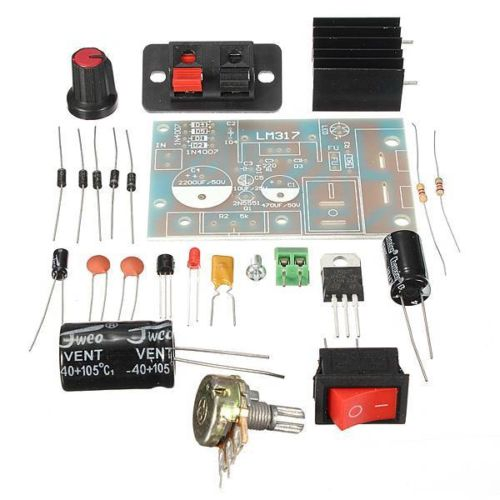
Specifications:
- PCB size: 69 * 50mm
- DC input:5-35V
- AC input:6-25V
- DC output:1.3-30V
- Maximum current: 1A
- Minimum differential pressure: 3V
As for the results - well it seems to work fine:
I connected it to a (fresh) 6v Duracell Lantern Battery and noted the following.
With the battery connected, and the Power Supply switched to the OFF position - the multimeter shows 0.061v - now I'm no electronics guru - but that seems to me like there is some kind of leakage through the Power Supply. Perhaps it is just because I have not done the best job of soldering - dunno.
Switched ON - with output turned down as low as possible - 1.265mV
Switched ON - with output turned up as high as possible - 4.22mV - so given that those figures were obtained while connected to a Duracell 6v lantern battery (outputting 6.41v on my multimeter) this unit obviously allows a better than 3v minimum differential pressure - more like about 2.4v
I also note that the little red Power On LED only lights up when the output voltage goes over 2.2v
The specs also say it will accept an AC input of 6 - 25v, but I haven't got any way of testing this - I guess I would need some kind of step down transformed to take the 240v from the wall and convert it into something I could use - and I don't have such a bit of kit.
At some point I will get out my proper power supply and test it with up to 30v DC and see how it goes - but for the moment - I'm pretty happy with it.
All up it took me only about 1 hour to complete this kit - and I'd recommend it to anybody starting off in electronics - first off - you get some cheap soldering practice, and if you get it going - you've got yourself a reasonable power supply - not bad for $2.00
Here are a couple of pictures of it after I built it - I told you my soldering was pretty rough!! And the truth is, as rough as the soldering is - I'm really happy with it :)
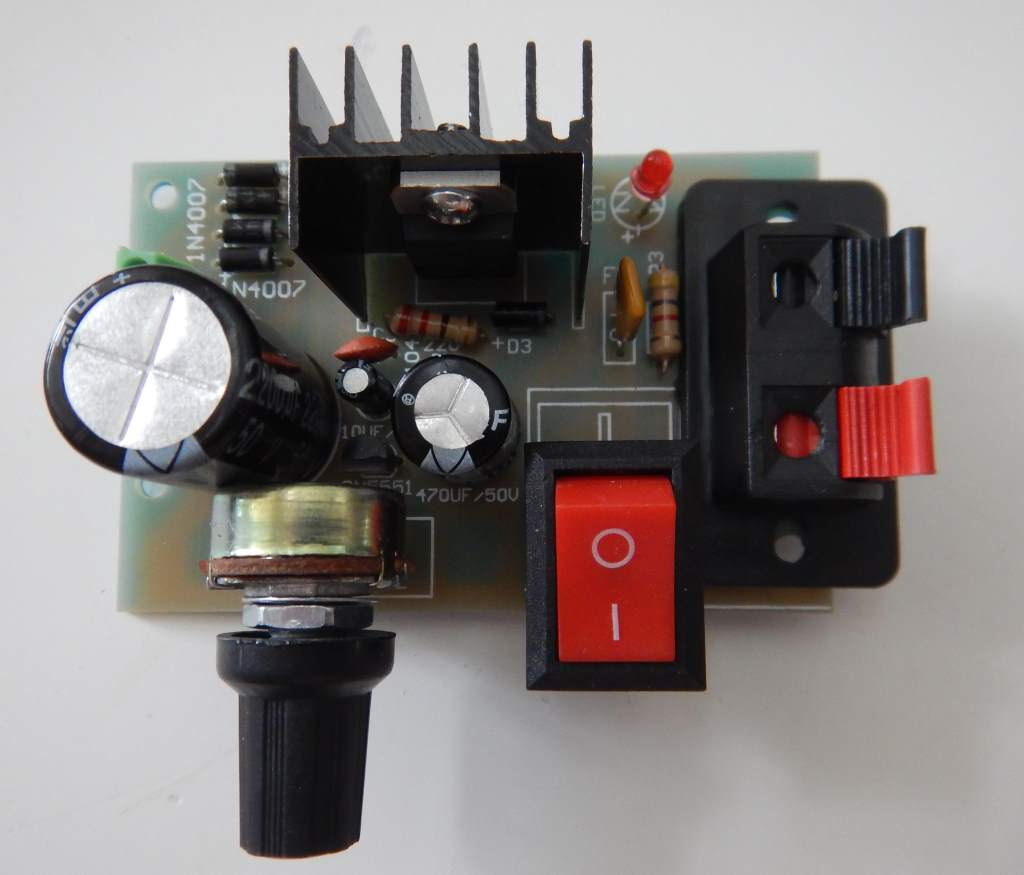
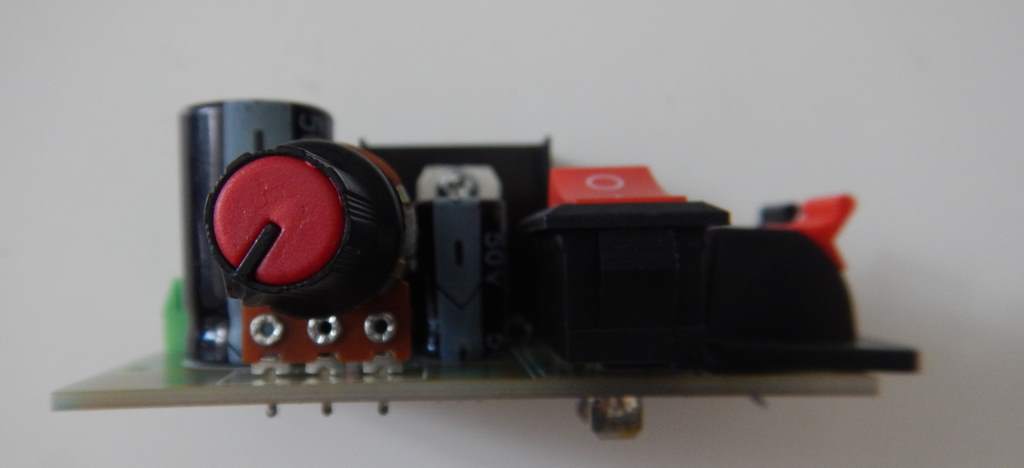
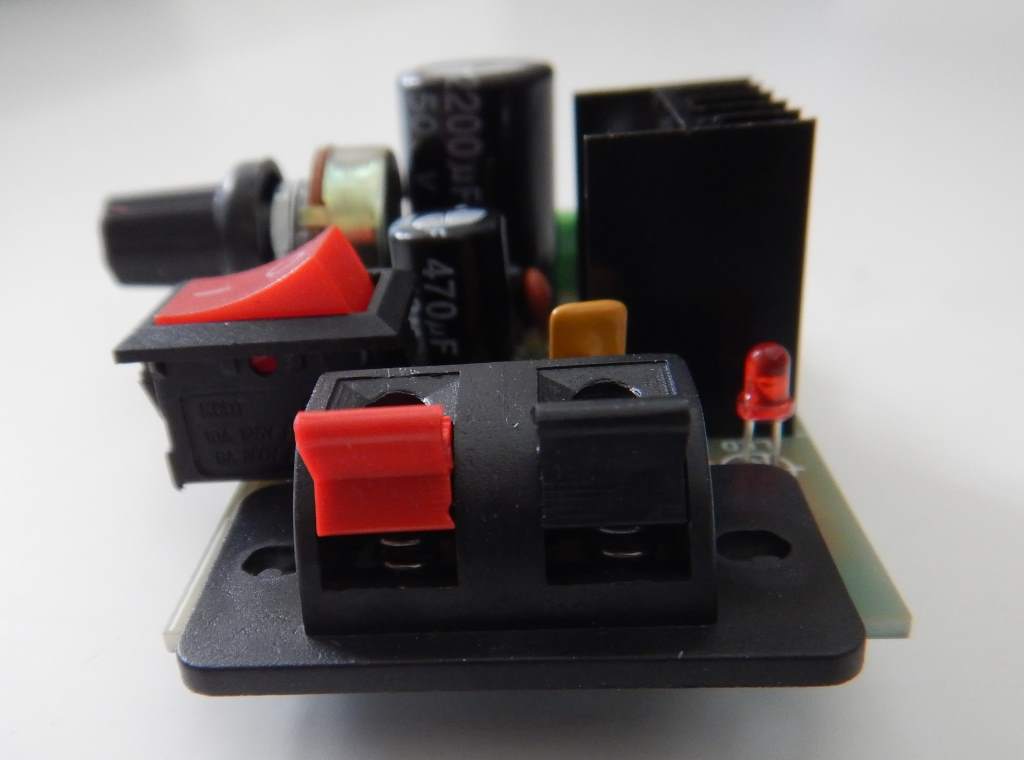
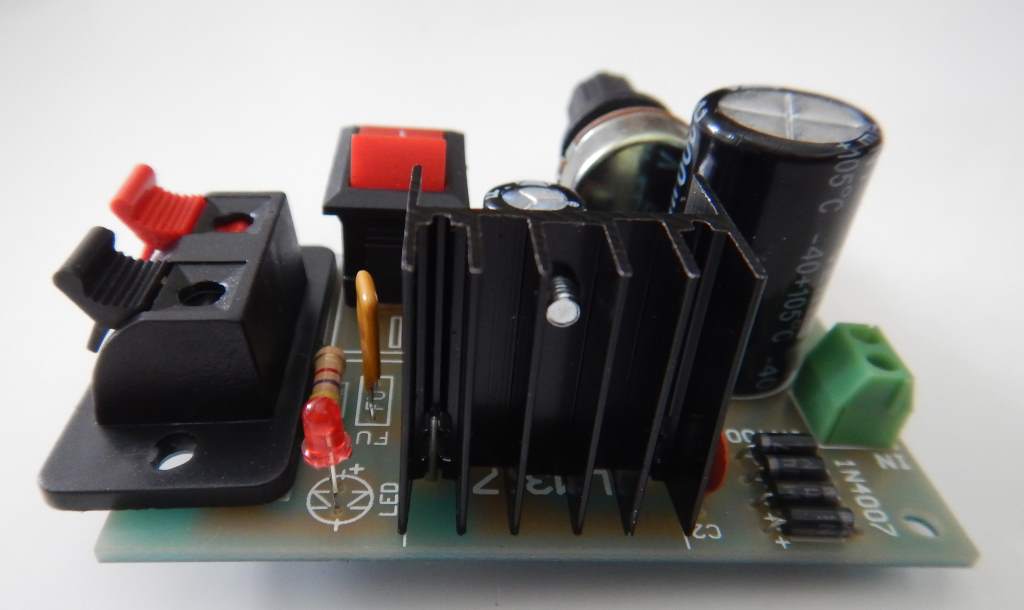
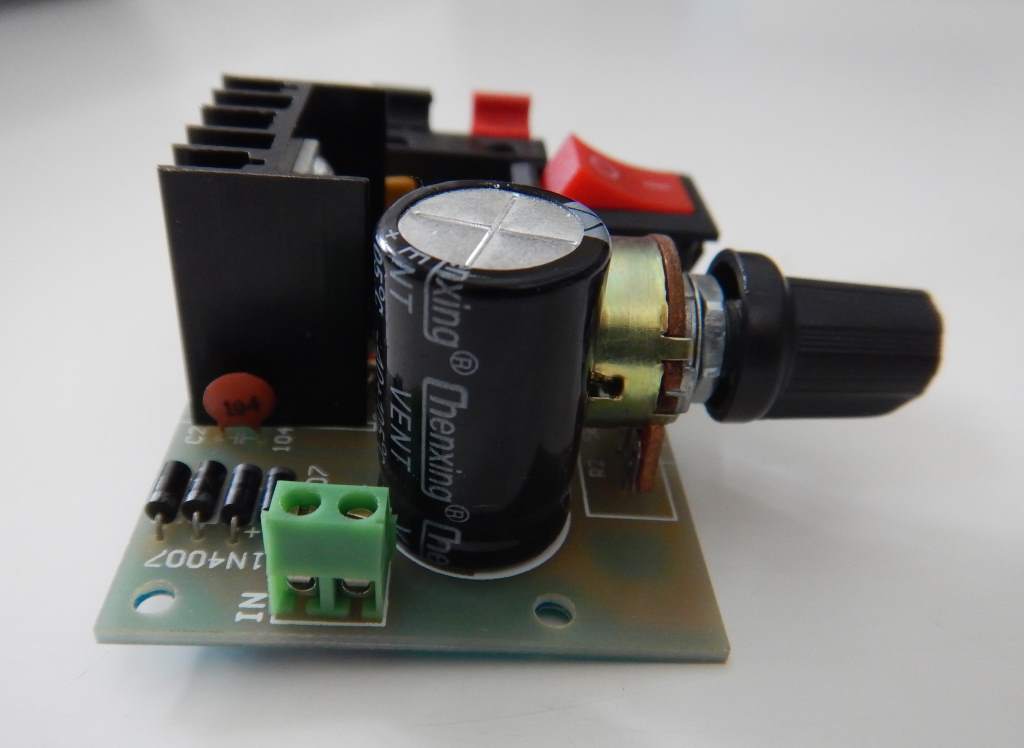
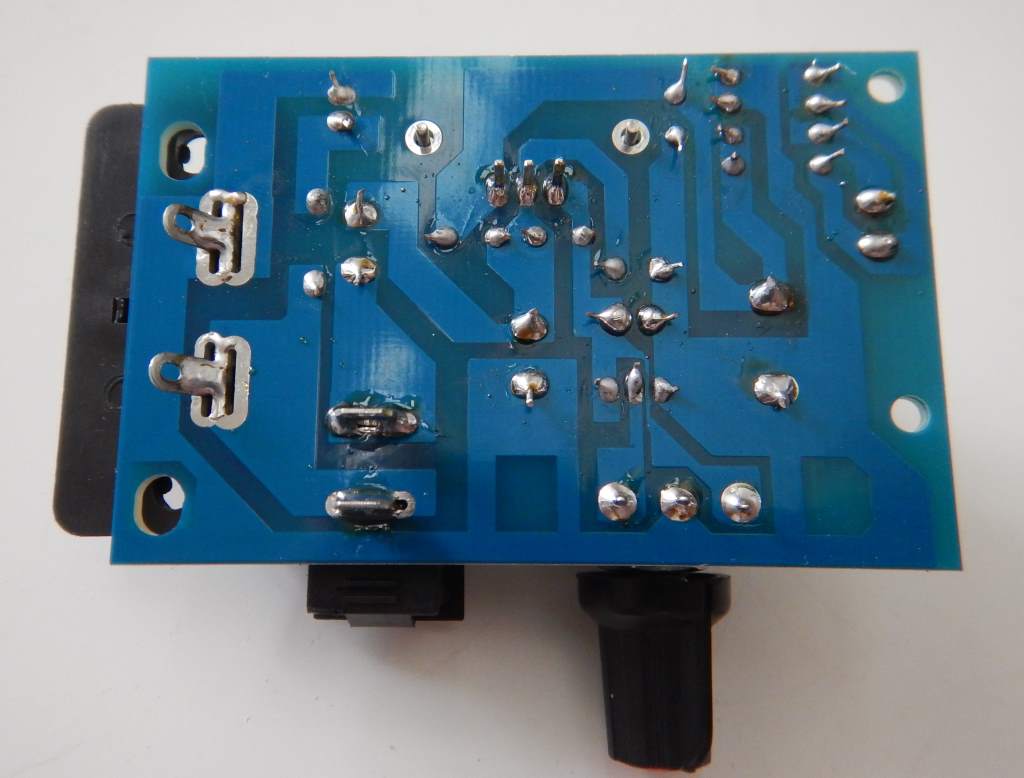
In fact I'm so happy with it I have also bought another two power supply kits - this one is a 1A, but I have also bought a 3A kit and a 7A kit - they were a little bit more expensive - $7 and $11 - so they still weren't expensive- so I'll add those to this site as I build them. In hindsight - I reckon these are a great way to get some soldering practice.
Even though the two new Power Supplies I've bought were still pretty cheap - I don't want to trash them, so I've bought a couple of other really cheap kits for soldering practice - A Water Flow LED light kit for about $1.80 - I bought 2 of those - one with all red LEDs and the other with multi-colours.
And for when I get reasonable at soldering - I bought myself a Morse Code 40M CW Shortwave QRP Pixie Kit Transceiver 7.023-7.026MHz - and again - less than $7.00 - bargain.
I wish I'd thought of these dirt cheap eBay kits for soldering practice before!!
Just out of interest - here are a bunch of You Tube Videos I watched to learn how to solder (or Sodder as our Linguistically challenged American friends like to call it). They seem to give good information on soldering, and if nothing else - they are certainly a blast from the past :)
And here are the EEVBlog/David Jones videos on how to solder as well - lots of good advice - all in Dave's unique - ummmmmm - style :)